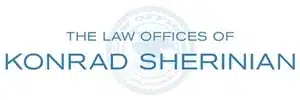Copyright Defined
Copyright is a kind of intellectual property that protects an original work done by someone after the work is expressed in a tangible form. Copyright includes creative works like motion pictures, videos, books, computer programs, lyrics, music composition, art, literature, and more.
Laws related to copyright are there to enforce the rights of authors. It explains who can use, make, and sell work with or without permission.
Copyright Infringement
Copyright Infringement is a term used for the unauthorized use or reproduction of a protected work. Copyright Infringement ignores the rights of a copyright holder to control the use of their original works.
There are many different fields in which Copyright Infringement runs rampant. For example, music and movies are well-known industries that suffer from Copyright Infringement. These cases have led to numerous lawsuits – some against individuals that copied works using technology like BitTorrent.
If creators wish to protect their works, they should register them for copyright protection as soon as possible. In this way, they can get maximum profits from their creativity through their efforts. If someone wants to use your work, they can get permission from you by entering into a license agreement or purchasing the work outright.
Issues Involved in Copyright Infringement
With technological advances, Copyright Infringement issues have increased with time. These issues may involve;
International issues
Many issues can arise when attempting to enforce copyright internationally. Most countries are signatories to the Berne Convention, which governs the international enforcement of copyright.
Technology related issues
Technological advances have made it easy to copy creative works. Pure and simple, it is now easier for individuals and companies to use others’ products and information even for profit.
Art and Digital Work
Copying artwork, photography and videos has become very easy – you can literally do it with the click of a mouse. Sometimes, people even download photos to their phones and other devices without intending to do it.
How to Avoid Copyright Infringement?
Business owners need to take active steps to avoid Copyright Infringement. Here are a few steps you can take to avoid ending up in an expensive IP lawsuit.
- First of all, you must understand copyright laws and regulations. Do not confuse copyright with trademark, patents, or trade secrets. Being a copyright holder, you must understand the basics of Copyright Law.
- Do not use work that is not yours. Remember, you should not use creative work if you do not own the work or have a valid license for it. If you want to use a work, you must purchase it or get a license from the copyright holder.
- Keep in mind that almost anything you see on the internet is already protected. If you copy or display it as your own, you are potentially liable for Copyright Infringement even if you are not getting any financial benefit from it.
- There are sites like pixabay.com and pexels.com where you can find copyright-free images and videos. Similarly, there are sources of copyright-free sounds and music. Just make sure that anything you use is either copyright free or you have a license.
Fines and Penalties for Copyright infringement
If you are using or reproducing another’s work without a license, you are violating the copyright holder’s rights, which means a copyright holder can sue you. In certain circumstances, you can be liable to pay the copyright holder’s court fees, even their legal fees.
Real World Examples of Copyright Infringement
Let’s have a look at a few examples of copyright infringement.
- Use YouTube material created by another author; for example, use a song as the background of your video.
- Posting an image that you obtained from Google Images on your profile or website
- Translating someone else’s work and publishing it as your own.
Use of Copyright Symbol
If you rely on creative work like art, music, writing, picture, or video to make a living, then you rely on Copyright Protection. Once you obtain ownership of a copyrighted work, then you can use the copyright symbol in association with it. A copyright symbol is the capital letter “C” in a circle as “©”. You can use this symbol for your products, websites, books, videos, music, medicine, and any piece of art.
Final Words
So, this is it! You know the basics of copyright. If you require assistance litigating copyright or defending a claim of copyright litigation, please visit www.sherinianlaw.net. Our experienced attorneys are ready to help.
